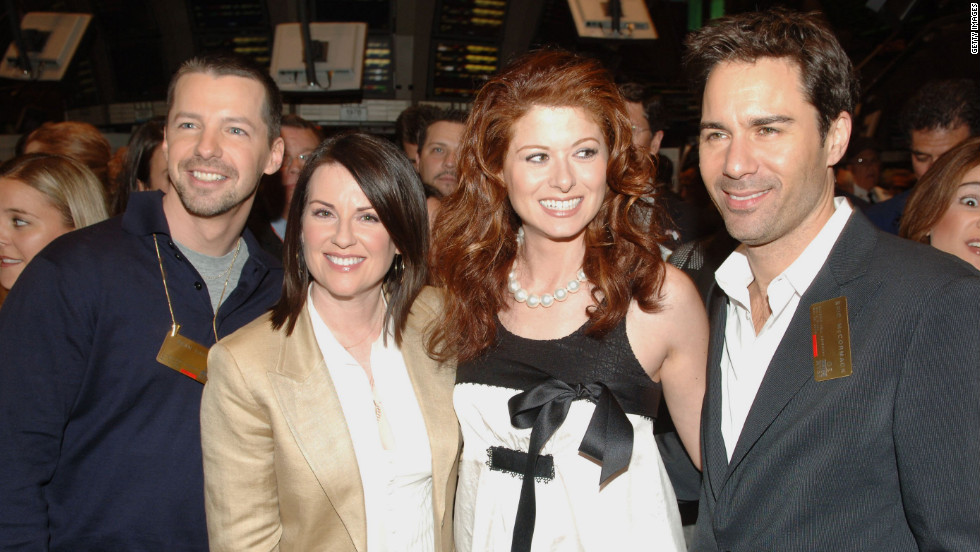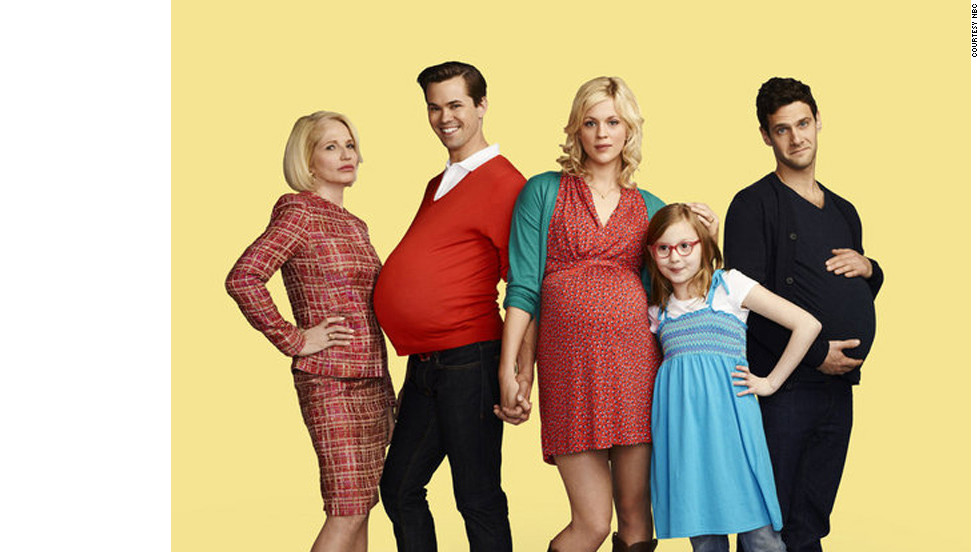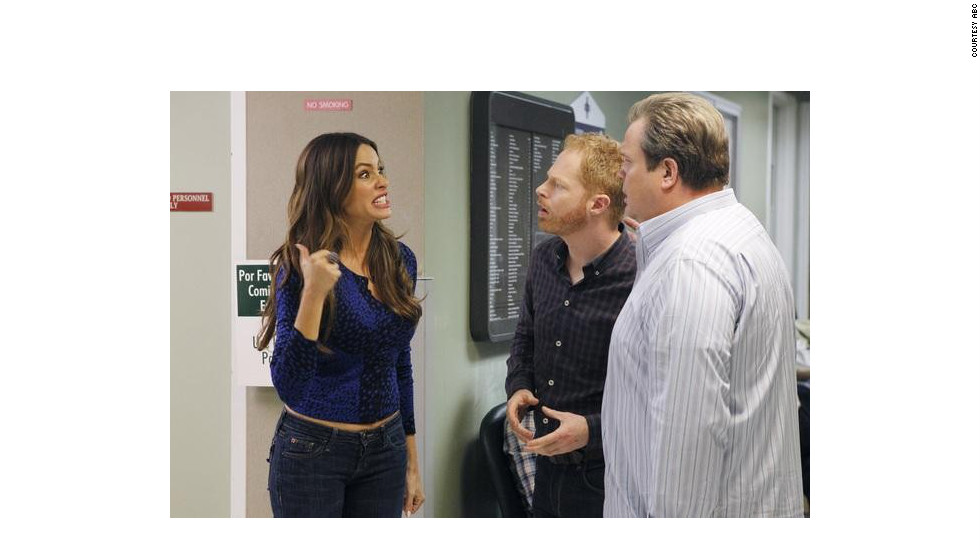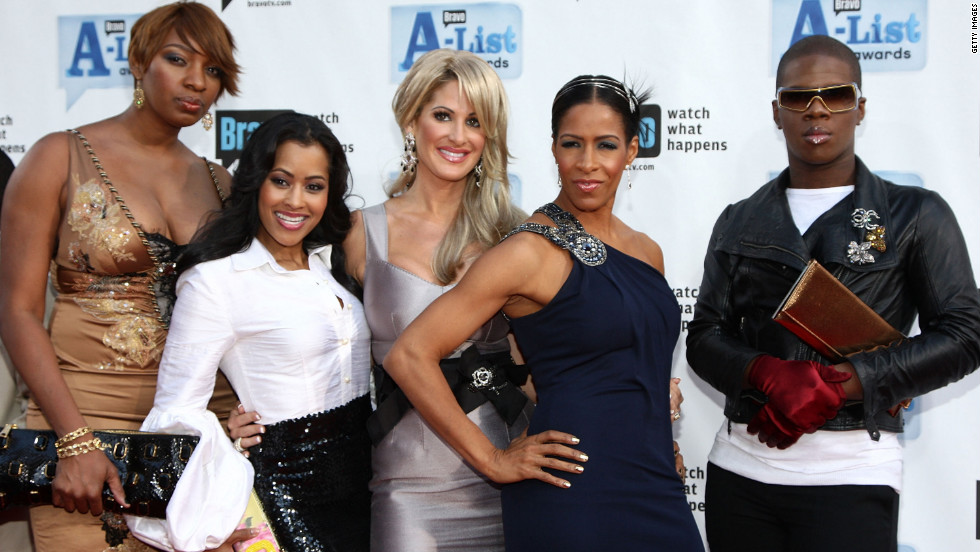Story highlights
- Patrick L. Riley is a gay man who shares special bonds with straight women
- Riley finds that in TV depictions of gay-straight friendships, gay males are often stereotyped
- He says these relationships are like any friendship or bond: complicated and necessary
I've known my BFF Natalie Palmer since ninth grade.
She's still my best friend 21 years later. We've shared some defining moments: her wedding and the birth of her two children; my coming out of the closet as a gay man; losing my mother at 23 years old; our 20-year college reunion. I couldn't imagine making it through any of these milestones without her by my side.
Though I have one loving sister, I easily consider Natalie a sister from another mother. More important, she set the standard for an ilk of relationship that I have grown to treasure and celebrate: the bond between gay men and their straight girlfriends.
Judging by popular depictions, a straight woman's connection with a gay man offers only the shallow benefit of an enthusiastic shopping buddy or a sassy hairstylist. But through the lens of reality and closer inspection, these relationships run deeper and wider. And there seems to be a growing acceptance of the unique duo.
In 1998, America warmed to a fictional version of this unique pairing when NBC introduced "Will & Grace," the first prime-time television series to star openly homosexual lead characters.
"I think 'Will & Grace' probably did more to educate the American public than almost anything anybody's ever done so far," Vice President Joe Biden said in a May "Meet the Press" interview. "People fear that which is different. Now, they're beginning to understand."
"From the perspective of gay men, women offer intimate friendship that is generally free from the complications of sexual interest," licensed professional counselor John R. Ballew of Atlanta wrote on his website. "For straight women, gay men offer male friendship that's free from game playing. Women can relax and be themselves with gay men in a way that's usually not possible with hetero men."
But that doesn't mean our relationships are all about shoes and eyeshadow. "Will & Grace" underscored the dynamics and complexities that exist inside this unique bond, from the difficulty the gay man has coming out (even to his best girlfriend) to deciding to have a child together when neither friend's knight in shining armor has shown up. The levity in the sitcom made it easier for many viewers -- and me -- to swallow.
In the past 14 years, the presence of gay characters on the airwaves has exploded, from "Queer Eye for the Straight Guy" to the Sundance Channel's "Girls Who Like Boys Who Like Boys" and now "Glee" and the forthcoming NBC sitcom "The New Normal."
A sea change appears to be taking place in American attitudes as well: A recent Gallup Poll found that more than 50% of Americans now believe that gay or lesbian couples should have the right to marry, compared with 27% who felt that way in 1996, when Gallup first asked about legalizing same-sex marriage. The times are changing indeed.
Many of my gay peers tell me they appreciate the safe space, free of judgment, that straight women friends provide in their lives. However, some argue that the duo of gay men and their girlfriends may ring too shallow; they'd rather not be seen as a shopping buddy a la Carson Kressley or a treasured "glam squad" expert, forever pampering his "diva."
"What's always offended me about that stereotypical relationship, especially following 'Will & Grace,' is the notion that the gay man gets turned into a commodity," notes gay writer Thomas Rogers on Salon. "The gay man allows women to feel exotic, like they've suddenly found themselves an exciting pet or fancy outfit that will get them comp tickets to Broadway shows."
Joe Forester, 23, boasts four best straight girlfriends. Despite the clich├й, he says, he's never felt like "the token gay guy."
"We always look at the bigger picture and see our relationship far more precious and important than anything petty," said Forester, a New York resident who met his besties Nicole, Megan, Annie and Emily back in Millsboro, Delaware, when they were all in high school.
Like Carrie Bradshaw's same-gender-loving buddies in "Sex & the City" and the revolving door of gentlemen who pop in and out of the lives of the uber-popular "Real Housewives of Atlanta," I've advised my girlfriends on fashion and cosmetics. And at their request, I've even weighed in with a tip or two for keeping their men happy.
But more important than fashion or sex, it's the emotional security that primarily comforts me inside these special bonds, especially during life's worst moments. In 2005, my friend Nichole held my hand as we sat through the memorial service and watched the cremation of my lover who died unexpectedly from a heart attack at the age of 36.
"There were many days and many bottles of wine," Nichole recalled. "We'd just cry and laugh and cry and laugh and cry."
These friendships led me to the project I'm working on, a book and documentary about the relationships between gay men and their best straight girlfriends.
I have interviewed dozens of "couples" for the project, including Robin and Peter, two life coaches and friends who traveled from the States to South Africa to help redefine what constitutes family during the country's post-apartheid, regime-shifting era; and Sheila and Chuck, seasoned broadcast journalists who thought their fun times would be cut off when he was diagnosed with AIDS. Twenty years later, Chuck is alive and the godfather of single adoptive mother Sheila's son, Charles.
San Fernando Valley resident Eddie Satterfield, whose best female friend is Academy Award-winning actress Mo'Nique, remembers some particularly trying times in their friendship. Two of her ex-husbands were jealous of his relationship with Mo'Nique, even though he was gay, says Eddie, who has been friends with the comic star since 1989, when they were phone operators in Baltimore.
"I had to step back and let her see what I knew all along" about the past significant others in her life, Eddie says. "Sometimes being a good friend means stepping back, even though you know your friend is hurting."
Mo'Nique is now happily married a third time to Sidney Hicks, but the disagreement she had with Eddie during the divorce from her second husband almost ended their treasured friendship until Eddie wooed her back with emotional mixtapes.
"We hugged, cried, made up and picked up where we left off," Mo'Nique said. "We haven't been the same. I'm more guarded. And though the turn of events are something that can't be taken back, I love Eddie and want him in my life."
As Eddie and Mo'Nique's breakup and makeup shows, friendships between gay men and straight women aren't that different from same-sex friendships or sibling relationships. They contain emotional landmines and serve as support networks -- and, like Will and Grace, those lucky enough to have them draw on each other for a lifelong platonic bond.
Do you have a special friendship with someone of a different sexual orientation? What keeps the bond strong? Share your experiences in the comments section below.



























